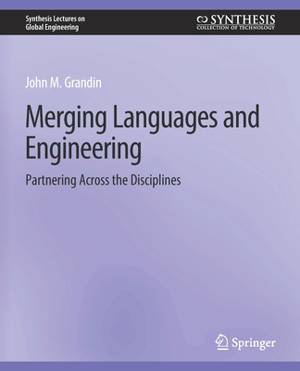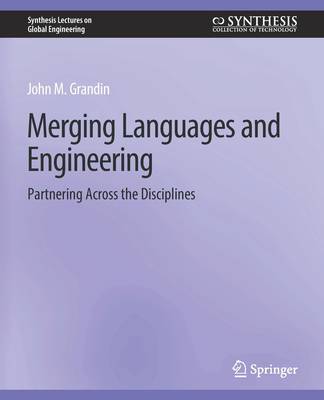
- Retrait gratuit dans votre magasin Club
- 7.000.000 titres dans notre catalogue
- Payer en toute sécurité
- Toujours un magasin près de chez vous
- Retrait gratuit dans votre magasin Club
- 7.000.000 titres dans notre catalogue
- Payer en toute sécurité
- Toujours un magasin près de chez vous
29,95 €
+ 59 points
Description
At the University of Rhode Island over 25% of engineering undergraduates simultaneously complete a second degree in German, French, Spanish, or Chinese. They furthermore spend an entire year abroad, one semester as exchange students at a partner university and six months as professional engineering interns at a cooperating company. With a close-to 100% placement rate, over 400 graduates, and numerous national awards, the URI International Engineering Program (IEP) is a proven path of preparation for young engineers in today's global workplace. The author of this volume, John Grandin, is an emeritus professor of German who developed and led the IEP for twenty-three years. In these pages, he provides a two-pronged approach to explain the origin and history of this program rooted in such an unusual merger of two traditionally distinct higher education disciplines. He looks first at himself to explain how and why he became an international educator and what led him to his lasting passion for the IEP. He then provides an historical overview of the program's origin and growth, including looks at the bumps and bruises and ups and downs along the way. Grandin hopes that this story will be of use and value to other educators determined to reform higher education and align it with the needs of the 21st Century. Table of Contents: How I became a Professor of German / My Unexpected Path to Engineering / Building a Network of Support / Sidetracked by a Stint in the Dean's Office / Reshaping the Language Mission / Struggling to Institutionalize / Partnering with Universities Abroad / Going into the Hotel and Restaurant Business / Taking the Lead Nationally / Building the Chinese IEP / Staying Involved after Retirement / The Broader Message for Higher Education / Conclusions
Spécifications
Parties prenantes
- Auteur(s) :
- Editeur:
Contenu
- Nombre de pages :
- 82
- Langue:
- Anglais
- Collection :
Caractéristiques
- EAN:
- 9783031009990
- Date de parution :
- 25-01-12
- Format:
- Livre broché
- Format numérique:
- Trade paperback (VS)
- Dimensions :
- 190 mm x 235 mm
- Poids :
- 172 g







